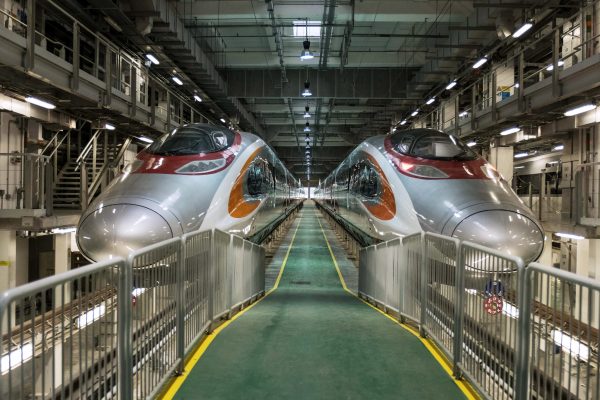The XRL will allow passengers to travel between Hong Kong and Beijing in less than 10 hours, but only if the clearance procedures of the two borders are done in the same place, or so say local advocates. But this solution has arguably violated the ‘one country, two systems’ principle and eroded the ‘high level of autonomy’ the former British colony was to enjoy under the Basic Law (Hong Kong’s ‘mini-constitution’ that was adopted after Hong Kong was returned to Chinese sovereignty).
This is not the first time the Hong Kong section of XRL has come under controversy. Since the construction of the 26-kilometre track commenced in 2010, the project has sparked tensions among stakeholders. There has been physical damage inflicted to buildings adjacent to the project, heavy pollution produced by the construction work and the removal of local settlements and communities on top of overspending and delays.
The core argument made by critics (led by the pan-democrats) against the project is that the co-location project violates Basic Law. Article 18 of the Basic Law stipulates that Chinese laws shall not be applied in Hong Kong except for those explicitly listed in an annex, and after a local legislative process. Leading sceptics fear that the co-location arrangement might set a precedent for more ‘zones’ to practice Chinese law in Hong Kong. They fear it may also lead to moves to limit the constitutional oversight of Hong Kong’s courts, as part of Beijing’s plan to exercise its ‘comprehensive governing powers’ over the Special Administrative Region.
Neither officials from Beijing nor from Hong Kong have come clear with the details of the legal basis for the co-location arrangement except by referring to the supreme constitutional authority of the NPCSC. The confusion over the co-location arrangement has been attributed to the differences between common and civil law and to the allegedly ‘elitist mentality’ of Hong Kong legal professionals who lack the propensity to understand China’s legal system.
The NPCSC has appealed to its constitutional authority in resolving the issue without explicating the rationale of the decision. This merely brings back the question of how high the ‘high degree of autonomy’ that Hong Kong enjoys under the Chinese Constitution really is.
The impact of the co-location controversy on democratic politics is not as clear. There is considerable support for the government’s proposal amongst moderate groups because of the potential economic benefits gained from improved facilities. Some also regard the fears over mainland influence as overdrawn and argue that Hong Kong requires a different approach to address these issues in any event. Several legislators who once supported impeaching the last chief executive of Hong Kong have sided with the pro-Beijing camp on this issue.
The response of the pan-democratic camp to the co-location decision is also grounded in other political developments in Hong Kong. Six newly elected Legislative Council members were unseated 10 days before the co-location announcement for ‘improper’ behaviour during the oath-taking ceremony. Aspiring candidates with similar political affiliations who ran in the by-election in March 2018 were also deprived of their candidature and prohibited from running for office. The co-location arrangement has thus become a natural target for opposition groups, leaving no place for cool-headed discussion about the options for border clearance procedures.
It is important to put the XRL issue in the context of the increasingly pessimistic mood towards the political future of Hong Kong. The failed push for universal suffrage of Hong Kong’s leaders in 2014–15 has promoted a view that prioritises safeguarding the former colony against the influence of mainland China. The co-location arrangement is interpreted by some as another incident of mainland ‘intrusion’. Mutual distrust on both sides has reinforced negative behaviour, creating a vicious spiral in Beijing–Hong Kong relations.
The progress of the democratic process in Hong Kong demands a role for Beijing, still. The XRL project is designed to enhance Hong Kong–mainland connectivity and communications to bring mutual economic and social benefits to both sides. Yet it has become another subject of controversy in Hong Kong–mainland relations, and trust has fallen to a new low. Effective governance is near impossible without winning public trust, while democracy in Hong Kong requires Beijing to have trust in the Special Administrative Region.
Beijing is keen on promoting global connectivity and understanding through its Belt and Road Initiative. One imagines how the same will be achieved across the vanishing border of the Shenzhen River.
Linda Chelan Li is a Professor of Political Science in the Department of Public Policy and Director of Research at the Centre for Sustainable Hong Kong at the City University of Hong Kong.


This is a non-issue that should be put to bed quickly. Direct trains from Hong Kong to Shanghai and Beijing have been departing daily for many years with no problems! Why not just continue the same system? The present argument is about NOTHING, and the proposed arrangements should be implemented without question or delay!